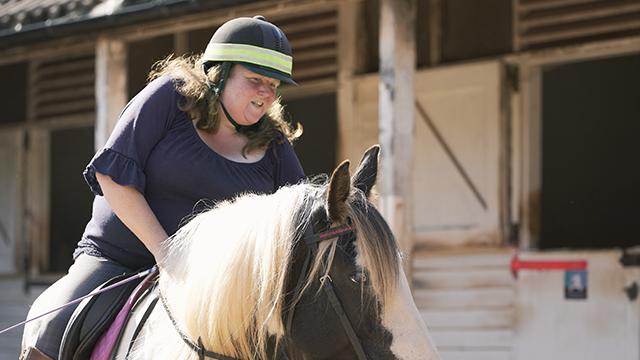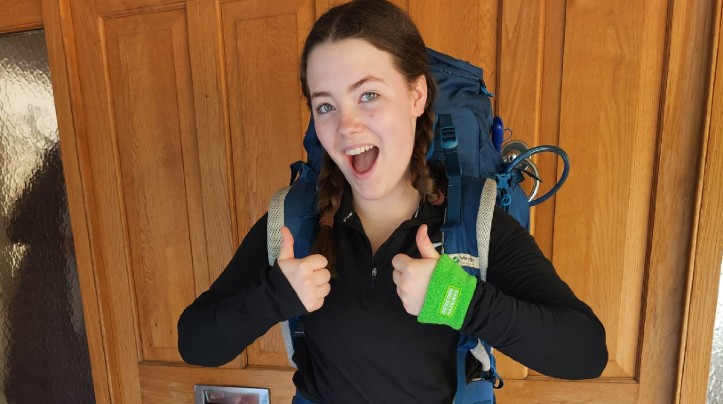
Diagnosed with type 2 after having gestational diabetes
Living with diabetes helps me as a nurse, as I can empathise with others living with the condition. Sharing my experience with other people has been really helpful. I’m very open and honest about it. It makes them feel a little bit more confident.
Mother of three, Gina developed sight loss after she was diagnosed with type 2 and worried about how she would continue working as a community nurse or enjoying being at the stables with her horses. But with treatment, she is now back driving, visiting patients at their homes and riding her horses.


